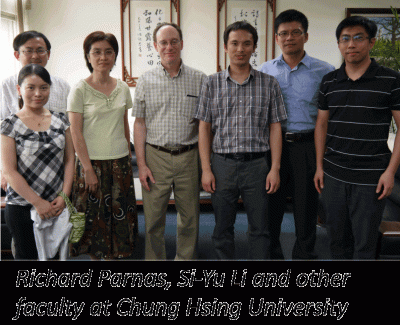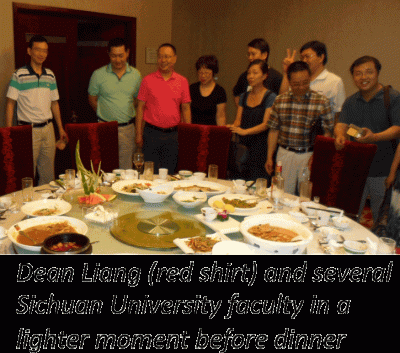 Read our Spring/Summer newsletter containing the latest information about “The Next Generation of Fuel Cells”, ” The New Explosive Detector Test Strip”, and much more.
Read our Spring/Summer newsletter containing the latest information about “The Next Generation of Fuel Cells”, ” The New Explosive Detector Test Strip”, and much more.
Month: August 2012
Brown Grease to Biodiesel
UConn Chemical Engineering Professor Richard Parnas is co-founder and CTO of RPM Sustainable Technologies (RPM ST), a local biofuel and chemical engineering service company whose mission is to supply process technology to the biofuels and chemistry industries. Aided by research conducted at UConn’s Biodiesel lab, RPM ST has developed a process to convert waste, in the form of brown kitchen grease, into fuel, in the form of biodiesel. Previous to this innovation, Dr. Parnas converted yellow grease into biodiesel that then powered the UConn campus buses. However, this process grew to be economically inviable as it gained popularity and drove up the demand for and cost of yellow grease.
Brown grease, the thick waste that accumulates in the grease traps of fryers, is both less expensive and widely accessible. Restaurants and companies usually transport this waste to treatment plants for incineration or disposal, but this is an expensive process that poses detriment to both human health and the environment. RPM’s innovation makes use of this waste by splitting it into oils, used to make biodiesel, and biosolids, which are converted to another fuel source, synthesis gas. In all, Parnas says, the conversion of brown grease is a multi-billion dollar opportunity that benefits both business and the environment.
Professor Parnas Conducted Renewable Energy Research at the Sichuan University, China
Dr. Richard Parnas visited Sichuan University in Chengdu, China, from May 11 to July 17, 2012. During the first four weeks, he taught the honors section of Chemical Reaction Engineering, a 3rd year core undergraduate course, by presenting several examples of multi-phase reactors. Upon the realization that partial differential equations and complex variables are included in the freshman year curriculum, Dr. Parnas also included heat transfer effects and wall boundary conditions.
Over the next few weeks, the class developed research ideas and started a project with switchable polarity solvents for biomass extraction. Many of the discussions occurred at social events, such as the birthday party of Dr. Parnas’s host, Dean of the College of Chemical Engineering Professor Bin Liang.
They then began a week of travel. Dr. Parnas gave a presentation to the Chinese Academy of Engineering in Beijing on the importance of separation processes in biomass conversion. Next they flew to Gansu province to visit a near-zero-emission combined steel, plastics, and fertilizer complex designed by Professor Liang and a team from Sichuan University. A series of meetings with the governor’s Minister of Industry, the mayor of Jin Chuan city (where the complex is located), and the 10 CEOs of the companies involved in the complex illustrated the fast pace of development that is possible when public / private partnerships are executed with a cooperative attitude.
A series of meetings with the governor’s Minister of Industry, the mayor of Jin Chuan city (where the complex is located), and the 10 CEOs of the companies involved in the complex illustrated the fast pace of development that is possible when public / private partnerships are executed with a cooperative attitude.